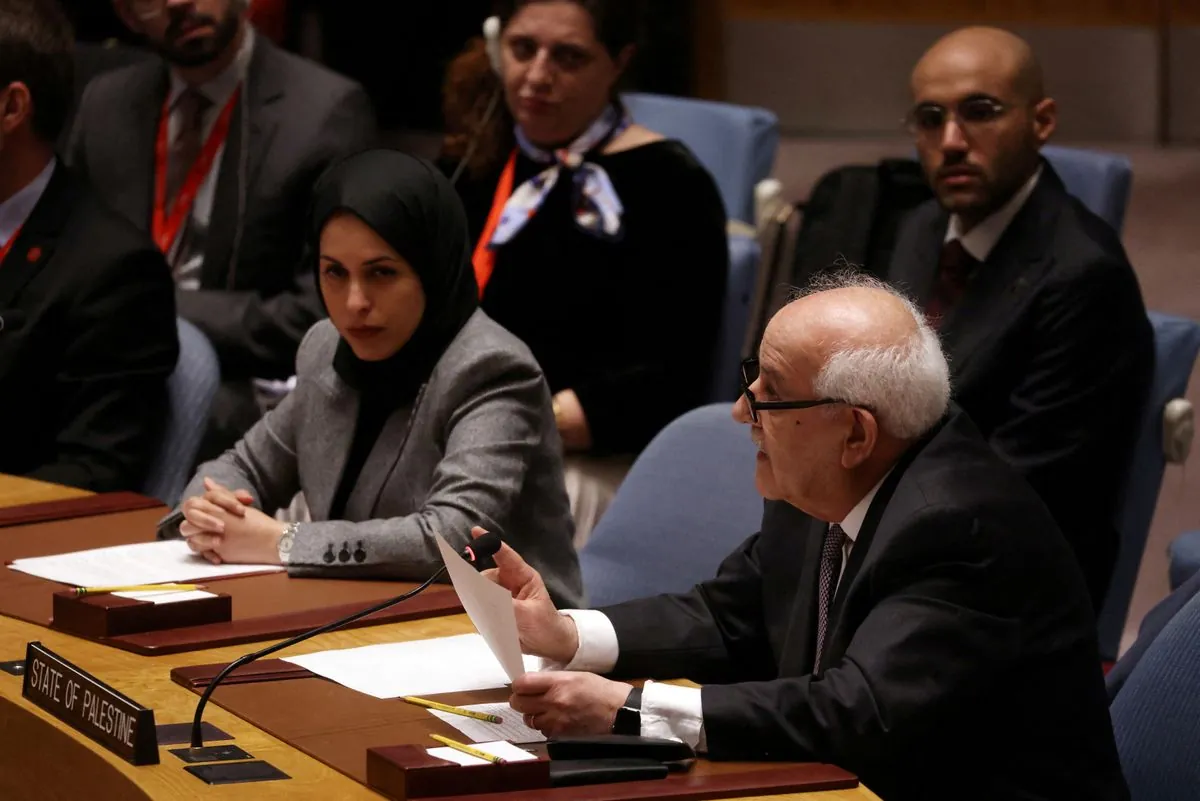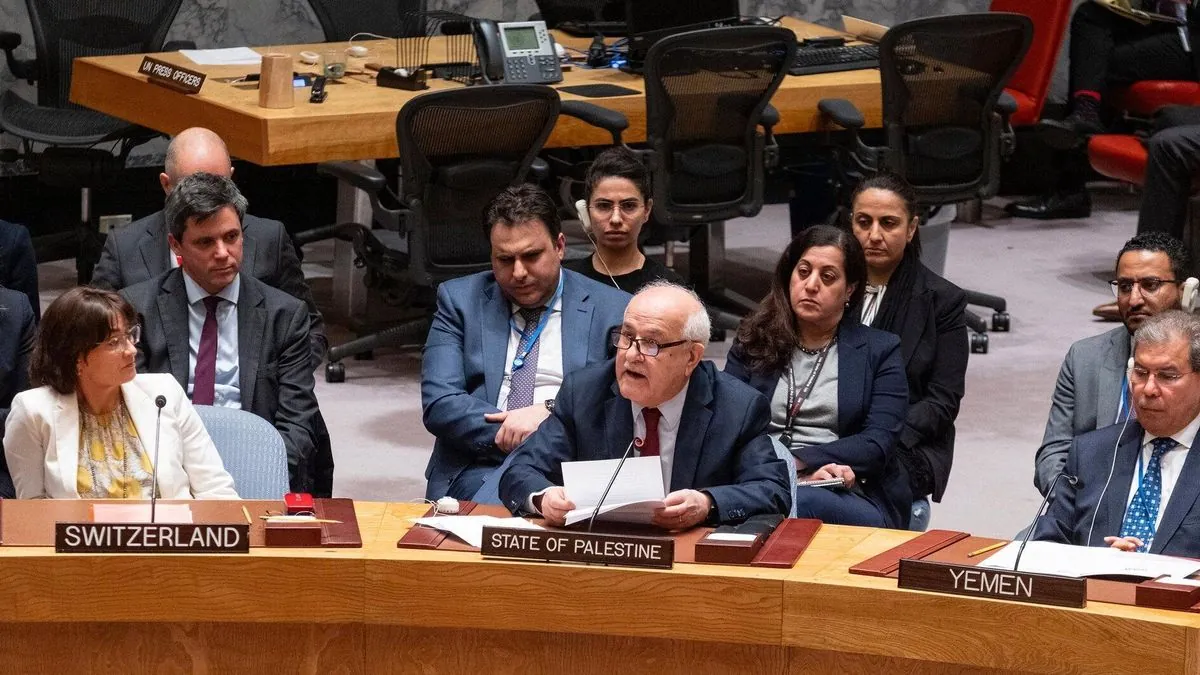Global Alliance Formed to Advance Palestinian Statehood
European, Arab, and Islamic nations launch initiative to strengthen support for a Palestinian state. The alliance aims to prepare for post-war Gaza and address escalating conflicts in the region.

A new international initiative has been launched to bolster support for a Palestinian state and its institutions, as reported by Espen Barth Eide, Norway's Foreign Minister. This effort, involving European, Arab, and Islamic nations, aims to prepare for the aftermath of the Gaza conflict and address escalating tensions in Lebanon.
Eide highlighted a growing global consensus on the need to establish a Palestinian state, emphasizing the importance of recognition and the development of Palestinian governance structures. The initiative, known as "The Global Alliance for the Implementation of a Palestinian State and a Two-State Solution," was introduced during a meeting on the sidelines of the United Nations General Assembly, attended by representatives from nearly 90 countries.
This new effort builds upon the 2002 Arab Peace Initiative, which offered Israel normalized relations in exchange for withdrawal from territories captured in 1967. The initiative addresses various complex issues, including security concerns for both Israelis and Palestinians, recognition and normalization of relations, and the demobilization of Hamas as a military group.

Norway, as the guarantor of the 1993 Oslo Accords, plays a significant role in this initiative. The Oslo Accords, signed 31 years ago, created the Palestinian Authority and established self-rule areas in Palestinian territories. However, Eide noted that despite these agreements, Israel's occupation continues, and negotiations for a final settlement have stalled.
As of September 2024, 149 of the 193 UN member nations have recognized a Palestinian state. Eide urged universal recognition and the strengthening of Palestinian institutions to meet the expectations of people in the West Bank and prepare for a return to Gaza.
Prince Faisal bin Farhan Al-Saud, Saudi Arabia's Foreign Minister, expressed the joint Islamic-Arab ministerial committee's commitment to changing the reality of the conflict. The European Union, represented by foreign policy chief Josep Borrell, called for practical measures to bring about "a free Palestine next to a secure Israel."
"What is the solution, and can it be implemented?"
The initiative faces significant challenges, including opposition from Israeli Prime Minister Benjamin Netanyahu. However, proponents argue that a new approach is necessary after decades of failed or stalled negotiations.
The alliance's efforts are built on previous peace initiatives, including the 2002 Arab Peace Initiative endorsed by the 22-member Arab League and the 57-member Organization of Islamic Cooperation. This proposal offered Israel normalized relations in exchange for a full withdrawal from territories captured in 1967.
Efforts to strengthen Palestinian institutions continue, despite obstacles such as illegal settlements and settler violence. The Ad Hoc Liaison Committee for the Building of Palestinian Institutions, chaired by Norway, involves contributions from the United States, Canada, the EU, and various Middle Eastern and European countries.
As the international community grapples with the complexities of the Israeli-Palestinian conflict, this new alliance represents a concerted effort to move towards a peaceful settlement. The first meetings of the alliance are scheduled to take place in Riyadh, Saudi Arabia, and Brussels, signaling a commitment to swift action in pursuit of a two-state solution.


































